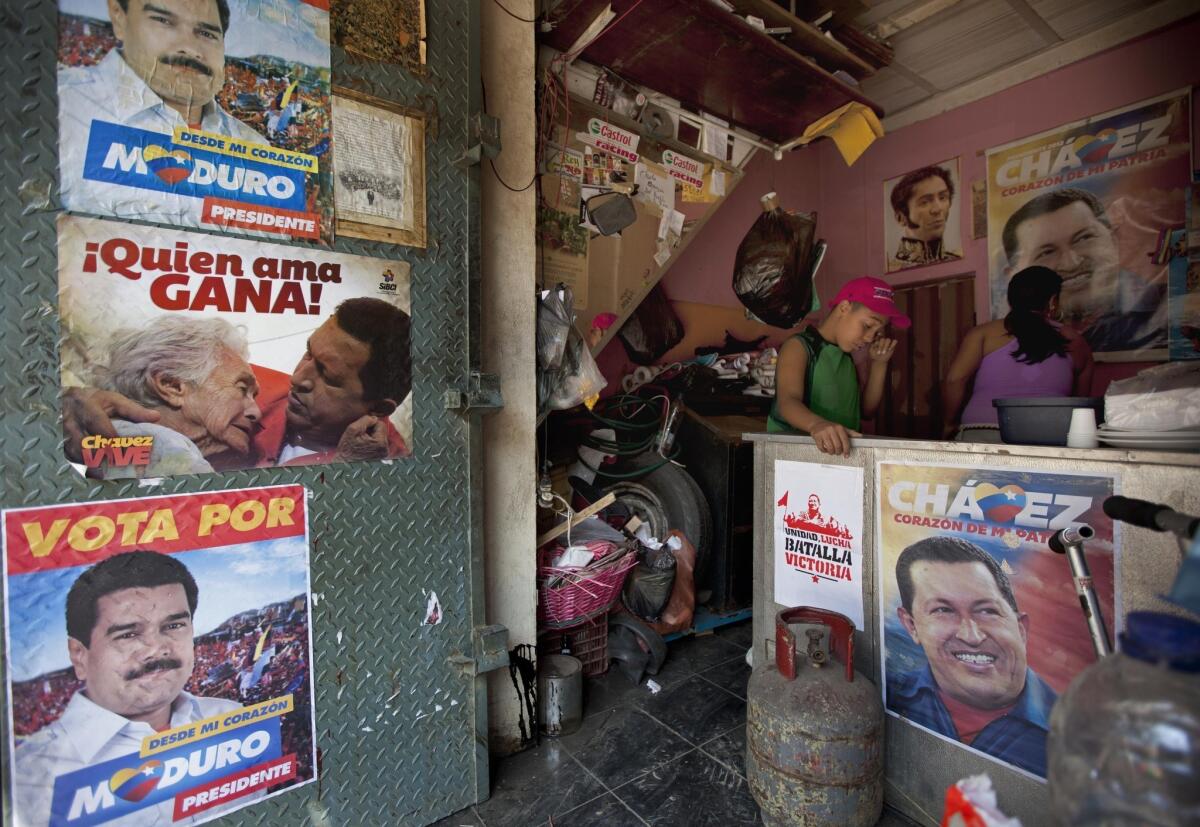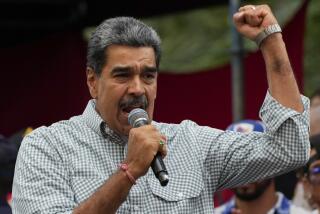Venezuela campaign closes with harsh accusations

CARACAS, Venezuela -- Venezuela’s interim president, Nicolas Maduro, is accusing his political rivals of bringing Colombian paramilitaries into the country to commit assassinations, a dramatic assertion that was typical of the brief but intense campaign leading to Sunday’s election.
Nearly 19 million Venezuelans are eligible to vote in Sunday’s poll, in which Maduro will square off against Miranda state Gov. Henrique Capriles. The winner will serve out the term of Hugo Chavez, who died March 5 after designating Maduro his political heir.
In a speech broadcast Thursday night on state-run television, Maduro said his vice president and running mate, Jorge Arreaza, will hold a news conference Friday to detail the accusations against the opposition.
He said alleged paramilitaries had been detained in a series of raids, but didn’t specify how many or where the suspects were arrested.
“They are preparing to reject the elections results,” Maduro said of Capriles and his supporters. “If they try to do it with a coup d’etat, we will make a revolution even deeper than what we have now. We are prepared for what is and what could come.”
In a Twitter message sent Friday, Arreaza said: “Today we will inform the country about the elements of the destabilization plan.”
Capriles said the accusations were lies and responded with harsh claims of his own.
“We back no sort of destabilization,” Capriles told thousands of supporters massed in the city of Barquisimeto, where he closed out his campaign Thursday. “When the polling places are closed, we must be present for the vote counting, because this group likes to pull tricks, and we can’t let them rob our hopes and future.”
Earlier this week, the government ordered the country’s borders with Colombia, Brazil and Guyana closed until Monday, a move the government said was a necessary security measure but Capriles called “arbitrary.”
Opposition figures believe the action was designed to deprive Capriles of votes from Venezuelans who work abroad.
Capriles ran unsuccessfully against Chavez in October. He agreed to run again after the National Electoral Council called a snap election shortly after Chavez’s death.
ALSO:
French Senate approves gay marriage bill
Kerry stresses ‘possibilities of peace’ for Koreas
Art market doldrums exhibited at Mexico City’s annual bazaar
Kraul and Mogollon are Times special correspondents.
More to Read
Sign up for Essential California
The most important California stories and recommendations in your inbox every morning.
You may occasionally receive promotional content from the Los Angeles Times.










